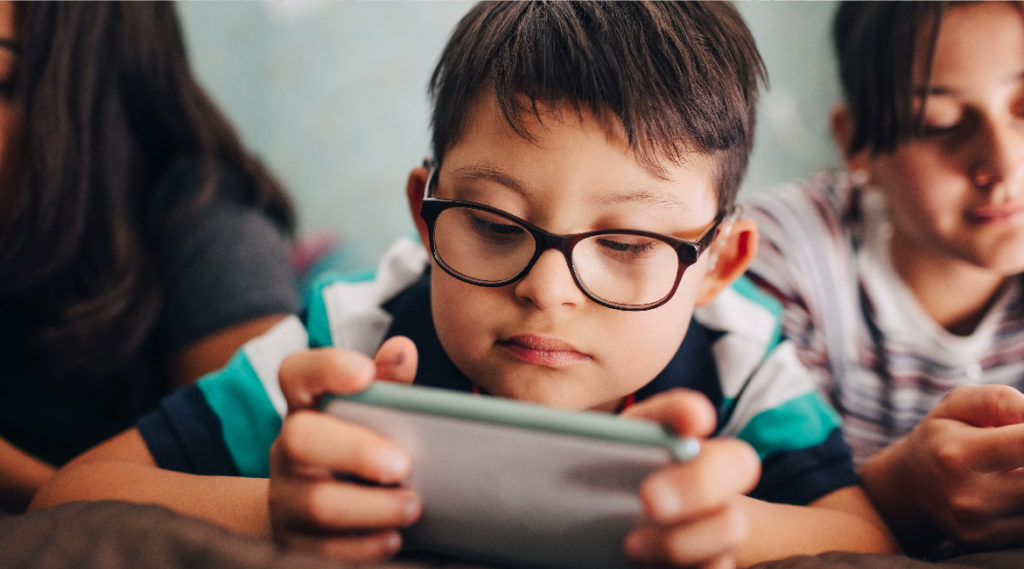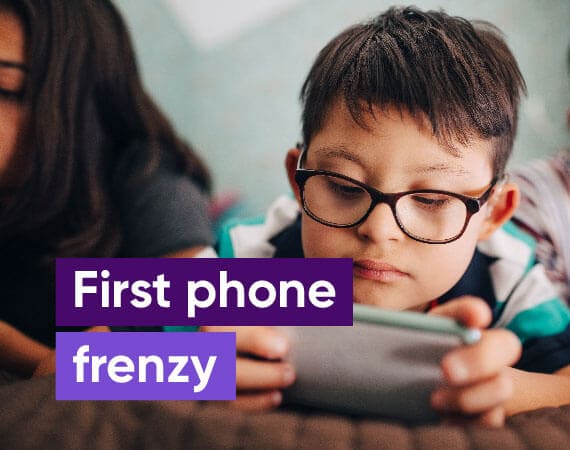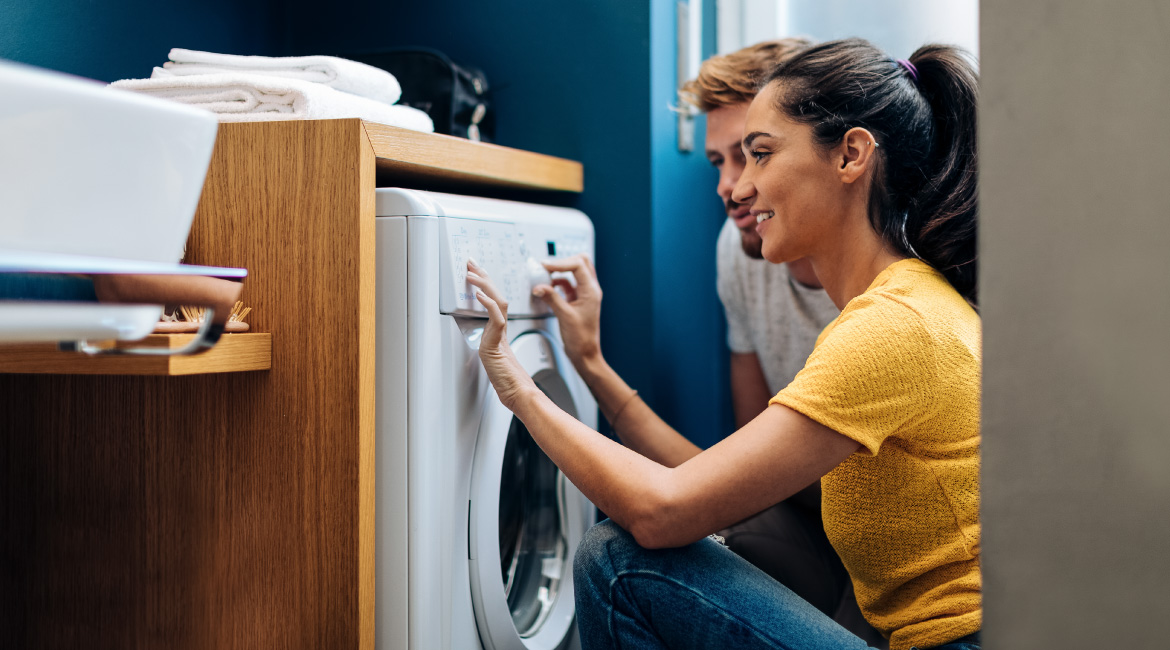
Every parent or carer today is all too familiar with the complicated role technology plays in raising little ones.
While we exist in an amazing world of never-before-seen connectedness and open communication, we’re still having to set and maintain boundaries around technology use. And perhaps there’s no bigger question in the parenting department than deciding when a child should be given their first smartphone?
Kids nowadays are accessing smart devices from an early age. Whether it’s propped up on the couch with a streaming site (hello Fetch) or playing an educational app, technology’s embedded in our everyday lives. In fact, research shows that the average child gets their first mobile phone at 10.3 years old and that by age 12 over 50 percent of kids have a social media account. Is that too early? Too late? There’s no hard or fast answer.
Dr Justin Coulson, one of Australia’s leading parenting experts and psychologists, believes “kids can have a phone when they’re able to pay for it themselves”. In one of his online educational videos, the dad of six says: “My belief is that the older they are before they get a device, the better it’ll be for both you and them… and even when they do get a mobile you still want to make sure they’re following the rules – no devices at the table, no devices in the bedroom, be social and polite online and off, be mindful of the content being consumed”.
Funnily enough, Bill Gates, the billionaire tech leader, agrees. In an interview with The Mirror, Gates revealed that his own kids weren’t allowed a mobile phone until they turned at least 14. And even then, the Gates family had strict limits on screen time. “We often set a time after which there is no screen time, and in their case that helps [the kids] get to sleep at a reasonable hour,” he said.
Of course, it always depends on the individual child, their individual circumstances (do they ever travel alone, or do they need to phone an adult regularly?), and their individual level of maturity. But to help parents come to a decision on the issue the Australian eSafety Commission recommends asking the following questions before handing over a smart device:
- Does my child have a good sense of responsibility?
- Are they able to stick to the rules?
- Do they show a good understanding of actions and consequences?
- Do they come to me or another trusted adult when they’re distressed or encounter problems?
The eSafety Commission also recommends starting younger children off with a mobile phone without internet access, like a Dodo $5 mobile plan. This way your child is still able to phone or text but can be slowly introduced to a smartphone once they demonstrate an appropriate level of understanding, at which point you can choose to add extra data to their plan. Of course, having a mobile provider that sends usage updates or caps data is a big help too.
The key here isn’t to give into peer pressure. Just because your kids’ friends have smartphones, doesn’t mean it’s the right journey for your own young ones. After all, you’re essentially handing them the world. These little devices give them the power to communicate, send pictures, create videos and tap into the world wide web.
Sometimes it’s not a case of “can my kid use the technology?” but “can my kid use the technology wisely?”. Don’t be afraid to say “not yet”.
And even after your child has been given their first phone, the facilitation doesn’t stop there. Now’s the prime time to instil safe online behaviours that they can carry with them the rest of their life. A few technology rules that might suit your family include:
- No phones after a certain time (i.e.. 7:00pm) unless in an emergency
- Dinner time is a no-phone zone
- Don’t share any passwords with other people, apart from parents
- Don’t share your real name, age or address with strangers
- Don’t take photos of others without their permission
- Treat others online as you like to be treated
- Don’t buy anything online without talking to an adult first
- Tell an adult if anything online makes you feel uncomfortable
Setting up all possible privacy settings and using apps (like Qustodio or Google’s Family Link) to limit daily screen time and apply parental controls is also a very popular way of managing your kids’ online experiences and preventing access to explicit content.
Open communication is essential – be upfront about your rules, why you’re limiting screen time, when you’ll re-evaluate parental controls and encourage your kids to think carefully about what they post and share online. At the end of the day, it’s all about creating a healthy relationship with technology. And that really does start at home.





